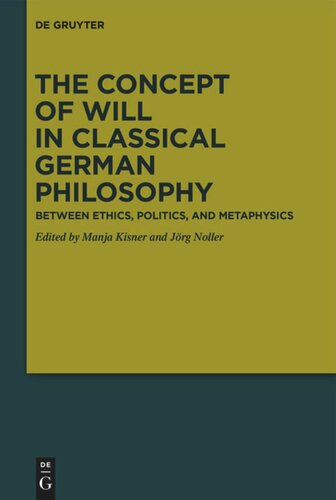

Most ebook files are in PDF format, so you can easily read them using various software such as Foxit Reader or directly on the Google Chrome browser.
Some ebook files are released by publishers in other formats such as .awz, .mobi, .epub, .fb2, etc. You may need to install specific software to read these formats on mobile/PC, such as Calibre.
Please read the tutorial at this link: https://ebookbell.com/faq
We offer FREE conversion to the popular formats you request; however, this may take some time. Therefore, right after payment, please email us, and we will try to provide the service as quickly as possible.
For some exceptional file formats or broken links (if any), please refrain from opening any disputes. Instead, email us first, and we will try to assist within a maximum of 6 hours.
EbookBell Team

4.1
90 reviewsThis volume collects thirteen original essays that address the concept of will in Classical German Philosophy from Kant to Schopenhauer. During this short, but prolific period, the concept of will underwent various transformations. While Kant identifies the will with pure practical reason, Fichte introduces, in the wake of Reinhold, an originally biological concept of drive into his ethical theory, thereby expanding on the Kantian notion of the will. Schelling, Hegel, and Schopenhauer take a step further and conceive the will either as a primal being (Schelling), as a socio-ontological entity (Hegel), or as a blindly striving, non-rational force (Schopenhauer). Thus, the history of the will is marked by a complex set of tensions between rational and non-rational aspects of practical volition. The book outlines these transformations from a historical and systematic point of view. It offers an overview of the most important theories of the will by the major figures of Classical German Philosophy, but also includes interpretations of conceptions developed by lesser-studied philosophers such as Maimon, Jacobi, Reinhold, and Bouterwek.